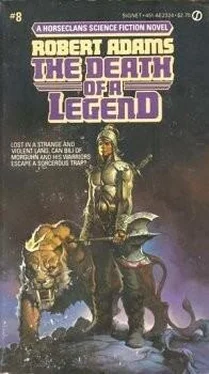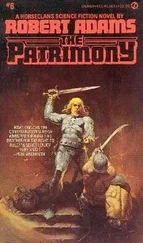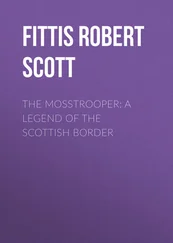“Well, do you agree with your overlord or not, Count Sandee?”
“Oh, my dear lord prince,” said Sir Steev, desperation in his voice, “I be but a simple knight-castellan, as your grace must know full well. And I…”
“And now I suppose you are going to try to convince me, all else having failed,” chuckled Byruhn, again good-natured, “that you have not the wit and experience to manage properly the holdings of a count Right? Oh, Steev, Steev, old comrade, we are not fools up in New Kuhmbuhluhnburk, you know. We were aware just who was ordering affairs for the County of the South while old Sandee slipped further and further from reality in his senile dotage. Steev, you’ve been Count of the South for years, in all save name, and it’s high time that you bore the title as well as the responsibility, enjoyed the privileges as well as did the work. “Now, enough of this argument. You have but a bit ago affirmed yourself to be my man and also affirmed your total willingness to obey my orders, whether you agreed with them or not. AH right, it is my will that you be invested with the titles and lands of your late father, that you become and remain for life the kingdom’s Count of the South.
“Do you obey my dictates, Count Sandee? Or do yon brand yourself foresworn and your earlier promises all lies?”
Old Sir Steev slipped from his chair to kneel before his prince, his scarred head hung in silent submission.
Byruhn patted the head affectionately. “Good. Now let’s to bed. Tomorrow, well two closet with Duke Bili and his captains and start planning our campaign against the Ganiks.”
At the appointed hour, Bili and Rahksahnah—who, with their strikers and bodyguards, had been the only newcomers quartered at the hall, all the rest of the men and women having slept in the tower—strode across the minuscule plain to where the squadron had gathered to await them. Bili noted that all of them appeared fit and well rested and that even a few of the wounded stood among them.
When he had greeted his officers and the two Ahrmehnee headmen, Rahksahnah’s lieutenant, Kahndoot, and the two cats, they but recently returned from night-hunting in the country beyond the surrounding crags of the safe glen, he summoned his followers to knot closely around him and addressed them.
He told them of the origins of New Kuhmbuhluhn and of the current problems besetting the realm—alien invaders from the north, outlaw rebels here in the south—and then be told them of the prince’s desire that he and they serve him through the worst of the present crisis as a condotta, its principal mission to be that of smashing the outlaws, then harrying the cannibal Ganiks so severely that they would flee their holdings and leave the Kingdom.
He had told Prince Byruhn that he would leave the final decision to his followers, and he intended to do just so. Therefore, he made no attempt to persuade them one way or the other, simply stating facts, but drawing no personal conclusions from those facts, not that he imparted to them, at least For he privately faced the fact that the suspicions of the duplicity of the prince he had mindspoken to Rahksahnah last night could be groundless and completely unwarranted. They could simply be bred of his long sojourn in the court and army of a king whom even his staunchest supporters—he had no friends—freely admitted was as devious as a viper. Perhaps he was wrong to ascribe to this Prince Byruhn the amorality of the Iron King.
As he spoke to his followers, he noted concern on many faces. Studying especially the Kindred and Ehleen nobility from the lands of the Confederation, he found what he surmised was anger at being detained and impatience to start back to the border and their homes.
Toward the end of his oration, the deep notes of an infantry bugle sounded from the direction of the main gate to the glen; the call sounded to him much like the one used in Harzburk to mark the change of the guard. But with the sounding of that mundane call, a visible stir seemed to pass quickly through those gathered about him, and before he could even finish that which he meant to say, he was deferentially interrupted by Lieutenant Brakit.
“My lord, if you please… ?”
“Yes, Brakit, you have a question?” asked Bili impatiently, anxious to finish his statements as soon as possible.
“No, my lord,” answered the officer. “It is just that, with my lord’s kind leave, I would serve the prince and New Kuhmbuhluhn. Only peace awaits now in the Ahrmehnee Stahn or in the Confederation, and peace offers no loot and precious little income for a professional soldier.”
A chorus of nods and grunts of agreement and approval came from the other Freefighters. But Bili had fully expected such, and had he been in their places would probably have felt and acted the same. For why ride the hundreds of long, dusty miles up to the Middle Kingdoms to find employment when a small war existed right here where they now stood?
But then Vahrtahn Panosyuhn spoke, saying, “Dook Bill, we Ahrmehnee, too, would stand with, ride with, fight with this Prince Byruhn, for these accursed Muhkohee… er, Ganiks, are our ancient foes, too. It would be a very good thing for our stahn, the driving of them south and west and away from our borders.” The Moon Maiden, Lieutenant Kahdoot, put in, “I know not how feels in this matter the brahbehrnuh, but she and all the Maidens recall should that slay and drive mad many of our ancestors did these Ganiks. More they slay did back on the Tongue of Soormehlyuhn. And for vengeance these many blood debts now cry. Under the banner of this kingdom, exact the last drop of that vengeance we can.” So far, it had all gone about as Bili had expected it to go, although far sooner and without the arguments he had anticipated. But now he got the unmitigated shock of his life.
“My lord thoheeks,” Bili recognized the man pushing his way through to the front of the throng as Mikos of Eeahnospolis, a kathahrohs—pure-blooded, or at least reasonably pure-blooded—Ehleen who had remained loyal to the Confederation in the late rebellion and had fought for almost a year against his own kin and co-religionists.
The stocky young nobleman—he was some two or three years older than Bili—was as darkly handsome as any Ahrmehnee, and the new, purplish scars—one down his cheek from within his straight hair to the knob of muscle at the angle of his jaw, the other across his square chin—served to impart a rakish, dangerous appearance. Bili recalled that he was the one who had flatly refused to charge the “monster” yesterday morning, but also recalled that his valor could not be questioned on full many another occasion. One of those livid scars came from the second attack of the rebel cavalry during the march into Vawn. Mikos had been one of those valiant few score led by old Thoheeks Kehn Kahr, who had died in that furious melee along with many another. Bili had seen the other scar inflicted, while Mikos was taking part in one of the last assaults against the walls of Vawnpolis.
He raised a hand in greeting. “The doughty heir of Eeahnospolis. I suppose you’re fairly itching to get back home, eh, Mikos? I can’t say that I blame you much; it’s probably full spring down that way, now.”
Mikos nodded. “Aye, lord thoheeks, I long to see my home again, and yesterday this time I would’ve spoken firmly against the Freefighters and Ahrmehnee and Maidens. But I thought hard on the matter in the night, and now I feel some different.
“These Ganiks are a terrible folk; they give new depth and meaning to the word ‘barbarian.’ Such vile creatures should not be allowed to live… at least, not anywhere in proximity to decent people. And also, we all owe Prince Byruhn a debt.
“We all would likely be dead or worse by now, had he not come out and brought us back to this safe place, something he had no obligation to do, but did anyway. Nor can many of us forget the miraculous things that his Master Elmuh did and has continued to do for our wounded.
Читать дальше












